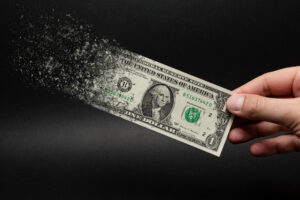Another Poor Showing for the U.S. Tax System

Another poor showing for the U.S. tax system? It seems that every day a new list of rankings is released about the locations where we live. Which state is best for owning a home, or which city has the highest vitality rate, are some of the topics discussed in previous lists, for example. Everyone has seen these types of stories and while some of these lists can be important or helpful, others are funny or just plain silly. Regardless, of the content, many of us enjoy seeing where our locations rank in the standings.
Globally Inferior
When it comes to tax lists, however, it seems that there isn’t too much to be proud of for the United States when compared to many other countries around the world. The Tax Foundation recently released its International Tax Competitiveness Index (ITCI) for the year 2014. The ITCI is used to measure tax system Competitiveness of the 34 countries that are part of the Organization for Economic Cooperation and Development (OECD).
Rating Factors
The criteria for the rankings is based on five key factors, which include:
- Corporate Income Taxes
- Property taxes
- Consumption taxes
- Individual taxes
- Treatment of foreign earnings
And the Winner Is…
Here’s a hint, it’s not the U.S. Estonia comes in at number one on the list with the most competitive tax system. So we’re not number one but the U.S. must be somewhere high on the list, right? After all, we drive the world economy in many ways. Yes, while it’s true that the United States helps drive the world economy, it still apparently lacks the goods in its tax system. In fact, we didn’t even crack the top ten. After Estonia, the rest of the top ten includes:
- New Zealand
- Switzerland
- Sweden
- Australia
- Luxembourg
- Netherlands
- Slovak Republic
- Turkey
- Slovenia
Bad Showing for the United States
So where did the U.S. end up then, anyways? Of the 34 countries included in the rankings, the U.S landed in the number 32 spot. That means the good old red, white and blue only beat two other countries in the rankings, Portugal and France. So why did the U.S. perform so poorly?
Corporate Taxes
One of the biggest reasons the ITCI ranks America’s tax system as one of the least competitive is because of the country’s corporate tax system. We have discussed this issue many times before and it’s something that will continue to be a problem for America until the government is willing to implement real tax change.
A Look at the Numbers
The numbers don’t lie. Among all 34 countries in the OECD, the United States has the highest corporate tax rate at 39.1 percent. It gets worse; besides the U.S. every other country in the OECD, with the exception of Chile and Norway have reduced corporate tax rates since the year 2000. Meantime, Ireland has the lowest rate at 12.5 percent, while the average rate is 25.4 percent.
Global Taxes
The United States is also given low marks because if its global tax on corporations. These global taxes have led several large companies to recently create corporate centers in foreign countries with friendlier tax systems. Compare the U.S.’s system to Estonia’s, which exempts 100 percent of any foreign profit that is earned by domestic companies from domestic taxation, and there’s really no comparison.
Work to Do
Corporate and global taxes weren’t the only problem for America. The country also receives low grades for property taxes, estate taxes and high individual income taxes, as well. These numbers clearly indicate that the United States’ tax system definitely has room for improvement.

We hope you found this article about “10 Ways to Avoid a Tax Audit” helpful. If you have questions or need expert tax or family office advice that’s refreshingly objective (we never sell investments), please contact us or visit our Family office page or our website at www.GROCO.com. Unfortunately, we no longer give advice to other tax professionals gratis.
To receive our free newsletter, contact us here.
Subscribe to our YouTube Channel for more updates.
Considerately yours,
GROCO, GROCO Tax, GROCO Technology, GROCO Advisory Services, GROCO Consulting Services, GROCO Relationship Services, GROCO Consulting/Advisory Services, GROCO Family Office Wealth, and GROCO Family Office Services.

Alan L. Olsen, CPA, Wikipedia Bio

Proud sponsor of the AD Show.

Rising prices make inflation-protected securities more attractive
Rising prices make inflation-protected securities more attractive High oil and gasoline prices combined with trouble in the Middle East, saber-rattling by North Korea, and a slowing housing market have many investors worried anew about inflation. Inflation is an ugly creature; when it spins out of control, it can quickly erase gains built up over years…
India Gets Help From the IRS to Track Down So-Called “Black Money”
India Gets Help From the IRS to Track Down So-Called “Black Money” We’re all aware of the U.S. government’s efforts to bring home tax dollars from those who either hold or earn money in foreign countries. Whether a company or an individual taxpayer is open about their money or purposely trying to hide it, the…
Strategic Asset Management With a Revocable Living Trust
Strategic Asset Management With a Revocable Living Trust Developing a sound investment management strategy is more than allocating assets and diversifying among the various asset classes. It is also about attaining your financial goals in life. The long-term security of your family is likely to be a key goal. To reach it, you want to…
A Safer Way to Invest in Stocks
A Safer Way to Invest in Stocks Investing in stocks can be really risky—particularly when somebody invests a lot of money at once and expects quick results. But it’s also true that investing in stocks can be surprisingly safe for certain investors. The men and women who are putting regular amounts into stock funds through…



